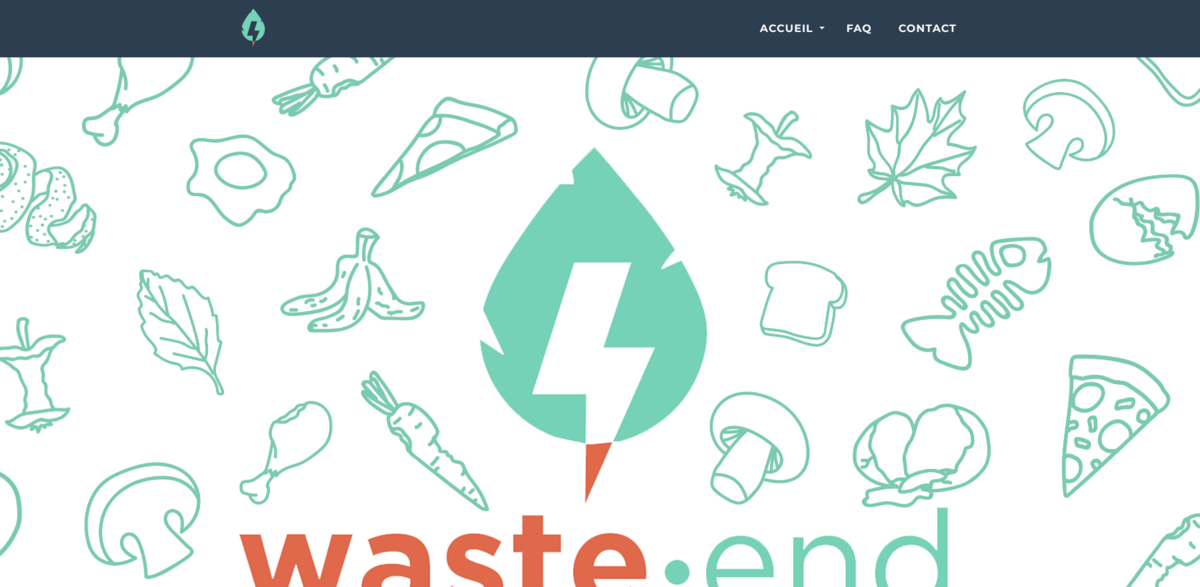What is the Waste-end Project?
Waste-end aims to valorize food waste with two major benefits: reducing waste and producing green energy. Through a natural biological process called biomethanization, the device provided by Waste-end breaks down organic waste, transforming it into biogas and natural fertilizer. This innovative solution is designed especially for small producers of food waste in the restaurant sector and communities, allowing them to directly benefit from the recovery of their waste right on-site, without having to rely on an external service provider. The system is easy to use and adaptable to the quantity and type of waste, making it a practical and environmentally friendly way to treat food waste while limiting the transport of materials.
Main Benefits of Waste-end
Waste-end offers a range of impressive benefits that make it stand out:
- Thermal energy production from food waste, calculated based on daily meal preparation and waste quantities
- Significant reduction in CO2 emissions, helping combat climate change
- Generation of natural fertilizer, turning waste into a valuable resource
- Estimated annual savings for users, making it economically attractive
- Limits food waste and avoids storage-related inconveniences like odors and pests
- Reduces fossil energy consumption by producing renewable biogas
How Biomethanization Works
Biomethanization is a natural biological process where organic waste is broken down by microorganisms in an oxygen-free environment. This process produces biogas—a renewable energy source—and a nutrient-rich digestate that can be used as natural fertilizer. Waste-end’s device harnesses this process efficiently, adapting to different types and amounts of food waste. The beauty of this system is that it transforms waste from a costly problem into a valuable resource, all while being gentle on the environment.
Who Can Benefit from Waste-end?
Primarily, Waste-end targets small producers of food waste, especially in the catering and restaurant sectors, as well as local communities. These groups often face challenges with food waste management, including storage issues and reliance on external waste services. With Waste-end’s on-site solution, they gain control over their waste, reduce their environmental footprint, and even generate green energy and fertilizer. It’s a win-win situation that turns everyday waste into something useful and sustainable.
The Team Behind Waste-end
The project is driven by passionate experts like Lola BrousmiChe and Régis Coli. Lola, with her background in chemical engineering and specialization in biomethanization, ensures that each installation is perfectly sized and technically sound. Régis, the Chief Technology Officer, brings a visionary and problem-solving mindset, always pushing Waste-end towards a more circular and sustainable future. Together, they combine technical expertise with a strong commitment to the circular economy.
Waste-end’s Impact on Sustainable Development Goals (SDGs)
- SDG 7: Affordable and Clean Energy – by producing renewable biogas
- SDG 11: Sustainable Cities and Communities – through local waste valorization
- SDG 12: Responsible Consumption and Production – by reducing food waste
- SDG 13: Climate Action – by lowering CO2 emissions
- SDG 15: Life on Land – by producing natural fertilizer and reducing pollution
Recognition and Support for Waste-end
Waste-end has earned several awards and grants that highlight its innovation and impact. These include the Inno Pépites Award 2018 for young companies, the Interreg Protopitch Boostcamp 2018 Securex Award, and multiple laureate titles from Mind & Market in 2019. More recently, it received support from the Foundation for Future Generations and was recognized by CENEO with the INEO Award in 2023. These accolades reflect the project’s potential to revolutionize food waste management and promote circular economy principles.






















